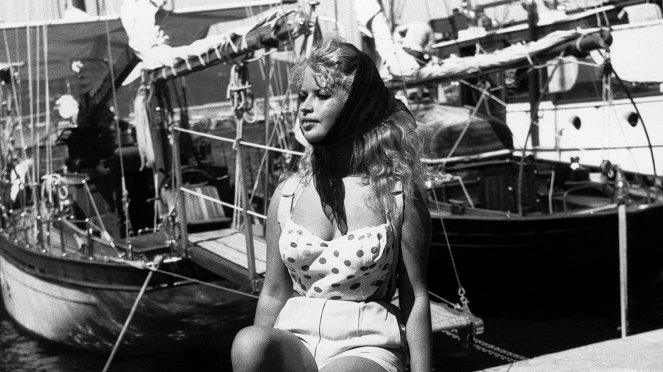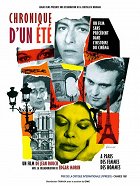Kuvaus:
Raoul CoutardSuoratoistopalvelut (1)
Juonikuvaukset(1)
Few films can claim as much influence on the course of cinema history as Chronicle of a Summer. The fascinating result of a collaboration between filmmaker-anthropologist Jean Rouch and sociologist Edgar Morin, this vanguard work of what Morin termed cinéma- vérité is a brilliantly conceived and realized sociopolitical diagnosis of the early sixties in France. Simply by interviewing a group of Paris residents in the summer of 1960 - beginning with the provocative and eternal question “Are you happy?” and expanding to political issues, including the ongoing Algerian War-Rouch and Morin reveal the hopes and dreams of a wide array of people, from artists to factory workers, from an Italian émigré to an African student. Chronicle of a Summer’s penetrative approach gives us a document of a time and place with extraordinary emotional depth. (Janus Films)
(lisää)Arvostelut (2)
Cinema vérité definitely won't be my cup of tea because similar films simply don't resonate with me and don't appeal to me. I do enjoy documentaries, but honestly, I'm more interested in other documentaries than these ones specifically. Paris isn't presented in an interesting way here, neither is its population, and I think that's what it was meant to be about. Or maybe it was really just about involving a person in the film?
()
This film should be mandatory for everyone who believes that a documentary is, by its very nature, what is meant to observe and capture reality "objectively" and in "unscripted" situations. Foolishness for many reasons, of which the Rouch/Morin duo choose only a few: first of all, in the context of the social sciences (among which the sociological documentary belongs), the recurrent illusory separation of subject and object, which inevitably imprints the observer's point of view on the observed reality. This is beautifully demonstrated by the authors' repeated entries into the actual film and their interactions with extras. Furthermore, the naive separation between scripted fictional scenes ("feature film") and authentic situations ("documentary") - the camera is always an invasive element, and its mere presence transforms the entire situation and behavior of the actors. This is beautifully shown in the brilliant final part, where the film's characters watch themselves during the screening, and in the subsequent discussion, there are mutually contradictory interpretations regarding the nature of spontaneity in their own and others' speeches. In short, it is a mockery from over half a century ago of those who expect a documentary to capture the emanation of pure Truth.
()
Kuvagalleria (10)
Kuva © Argos Films


Mainos